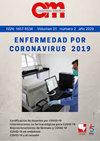Del ensayo y del error hasta EQUATOR Network
IF 1.3
4区 医学
Q3 MEDICINE, GENERAL & INTERNAL
引用次数: 0
Abstract
14.00 The dissemination of science is grounded on the reliability and value of the research literature that, through an editorial process, expresses the necessary detail to meet the reproducibility and refutability demands that underlie the scientific method. Three roles are defined in this editorial process that the researcher may assume at differing times or simultaneously, from the beginning of his career to the end of professional life: those of author, reviewer and editor. Authorship is scientific initiation, and despite identifying ourselves with the scientific method in the development of the research, writing and publication of a manuscript are closer to the methodologies of trial and error during the editorial process. Writing courses on scientific articles favor the structuring of information; however, they cannot cover the individuality of methodological design, and depending on the demands and help provided through editorial work, the published article may have a variable quality that does not reflect the methodological rigor and results of the research that was carried out. Sooner or later, publishing an article means receiving a call from the journals to be a reviewer of another manuscript in which one might be considered an expert, and for this new role there is no schooling. Review guidelines are sent along with the document to be evaluated and these are used indiscriminately for a laboratory experiment, a clinical trial or a qualitative analysis, among others. Experience counts and an academic background may lead a reviewer to evaluate using more formative recommendations, while a more exacting researcher will highlight the weaknesses and points where the writing needs improvement.14.00科学的传播以研究文献的可靠性和价值为基础,这些研究文献通过编辑过程,表达了必要的细节,以满足科学方法基础上的可重复性和可辩驳性要求。在这个编辑过程中,研究人员可以在不同的时间或同时承担三个角色,从他的职业生涯开始到职业生涯结束:作者、审稿人和编辑。作者身份是科学的开端,尽管我们在研究的发展过程中认同科学方法,但在编辑过程中,手稿的写作和出版更接近于试验和错误的方法。科学论文写作课程有利于信息结构;然而,它们不能涵盖方法设计的个性,并且根据编辑工作提供的要求和帮助,发表的文章可能具有可变的质量,不能反映方法的严谨性和所进行的研究的结果。迟早,发表一篇文章意味着要接到期刊的电话,成为另一篇可能被认为是专家的手稿的审稿人,而这个新角色不需要学校教育。审查指南与待评估文件一起发送,这些指南不加区分地用于实验室实验、临床试验或定性分析等。经验很重要,学术背景可能会导致审稿人使用更形成性的建议进行评估,而更严格的研究者会强调写作的弱点和需要改进的地方。
本文章由计算机程序翻译,如有差异,请以英文原文为准。
求助全文
约1分钟内获得全文
求助全文
来源期刊

Colombia Medica
MEDICINE, GENERAL & INTERNAL-
CiteScore
2.00
自引率
0.00%
发文量
11
审稿时长
>12 weeks
期刊介绍:
Colombia Médica is an international peer-reviewed medical journal that will consider any original contribution that advances or illuminates medical science or practice, or that educates to the journal''s’ readers.The journal is owned by a non-profit organization, Universidad del Valle, and serves the scientific community strictly following the International Committee of Medical Journal Editors (ICMJE) and the World Association of Medical Editors (WAME) recommendations of policies on publication ethics policies for medical journals.
Colombia Médica publishes original research articles, viewpoints and reviews in all areas of medical science and clinical practice. However, Colombia Médica gives the highest priority to papers on general and internal medicine, public health and primary health care.
 求助内容:
求助内容: 应助结果提醒方式:
应助结果提醒方式:


